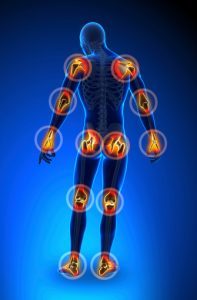 It’s the weekend, and we have another weekly health news roundup for you. If you experience arthritis pain or renal colic, we have detailed articles to get you up to speed on what you need to know. Heart disease is an issue we believe everyone should be more informed about, so we’ve included material on it. We also have more obscure issues included, such as spider angioma and ear burning sensation.
It’s the weekend, and we have another weekly health news roundup for you. If you experience arthritis pain or renal colic, we have detailed articles to get you up to speed on what you need to know. Heart disease is an issue we believe everyone should be more informed about, so we’ve included material on it. We also have more obscure issues included, such as spider angioma and ear burning sensation.
How to deal with arthritis pain on a daily basis
Living with persistent pain, such as arthritis pain, is always a challenge. You can manage occasional episodes of pain with quick go-to remedies like over-the-counter painkillers, but if the pain is chronic—meaning, it’s here to stay—you’ll need a long-term solution to continue functioning (and to do so in a safe manner). In other words, you need to learn how to deal with pain day in and day out and adjust your lifestyle to include this new value into the equation.
Advertisement
You may not like this idea, but in order to effectively transition into this new way of living, you’ll need to accept your pain as a family member. When you start living with someone, conflicts are unavoidable, but the longer you two co-exist under one roof, the more you become accustomed to each other and the better you get along. True, your relationship with pain is one-sided, but thinking of things this way should help you prepare for effectively handling pain in the long term without compromising your regular lifestyle. Continue reading…
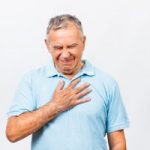 Amount of gray hair linked to heart disease: Study
Amount of gray hair linked to heart disease: Study
Graying hair is typically considered a sign of old age, and with old age comes an increased likelihood of health-related issues. While some may consider gray hair a sign of experience and wisdom, according to a new study presented at a European Society of Cardiology conference, the amount of gray hair in adult men is correlated with an increased risk of heart disease.
In the United States, heart disease is the number one cause of death in adults. It is a consequence of plaque buildup composed of cholesterol, fat, calcium, and other substances, collectively part of a disease condition called atherosclerosis. When these plaques become calcified over time, they reduce the elasticity of the blood vessels and limit the blood supply to various tissue and organs—most importantly the heart. If left untreated, atherosclerotic plaque buildup can lead to stroke, heart attack, and even heart failure. According to researchers’, atherosclerosis and graying hair have similar causes—damaged DNA due to aging increases oxidative stress and the aging of cells. Continue reading…
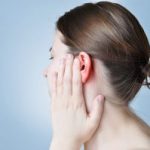 Ear burning sensation: Causes and home treatments
Ear burning sensation: Causes and home treatments
Ear burning sensations can be perceived as the ear feeling very hot as if it were near a heat source. This sensation is often a sign from your body telling you that something is wrong and you should pay attention to the pain in your ear. The sensation of burning in, on, or around the ear may cause it to feel tender to the touch, as the most probable cause of the pain is inflammation, a normal bodily process that is possibly due to a current bacterial or viral infection.
The sensation of a burning ear is most likely due to the otitis media with effusion. This is when the eustachian tube of the middle ear—the connection between the ear to your throat—becomes blocked with fluid and infected. This tube typically allows for the drainage of fluid from the middle ear, and if this flow is impeded, the inflammatory process will inhibit flow, leading to pain and swelling. Continue reading…
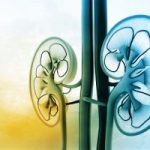 Renal colic: Symptoms, causes, and prevention tips
Renal colic: Symptoms, causes, and prevention tips
Renal colic is a pain associated with kidney stones that usually develops as a result of too much of a single chemical in a person’s urine. Here, we take a look at the symptoms, causes, and some helpful prevention measures.
Advertisement
Our urinary tract is made up of the kidneys, ureters, bladder, and urethra. Urine, which forms in the kidneys, passes through the ureters to reach the bladder. Here, it is stored and later released through the urethra and outside the body. When kidney stones form, they can block the urinary tract. Stones are like crystals and can lodge in different parts of the tract. If a crystal or stone gets lodged or travels down the tubes of the urinary tract, it can lead to renal colic pain. While this can happen to anyone, it is more common in men between the ages of 20 and 30. Some people have more than one kidney stone at a time. Continue reading…
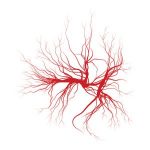 Spider angioma (spider nevus) in adults: Causes and treatment tips
Spider angioma (spider nevus) in adults: Causes and treatment tips
Spider angiomas go by many names, including spider veins, spider nevus, and nevus araneus. They are a collection of small, dilated blood vessels (arterioles) clustered very close to the skin surface. This clustering may take the appearance of a spider web, hence the name.
These clusters of blood vessels occur due to skin injury, sun exposure, hormonal changes, or even liver disease, but most of the time the cause is unknown. They are typically just a cosmetic abnormality, having no medical concern. In some cases, however, they may cause some discomfort. If desired, spider angiomas can be removed using a variety of methods. Continue reading…
